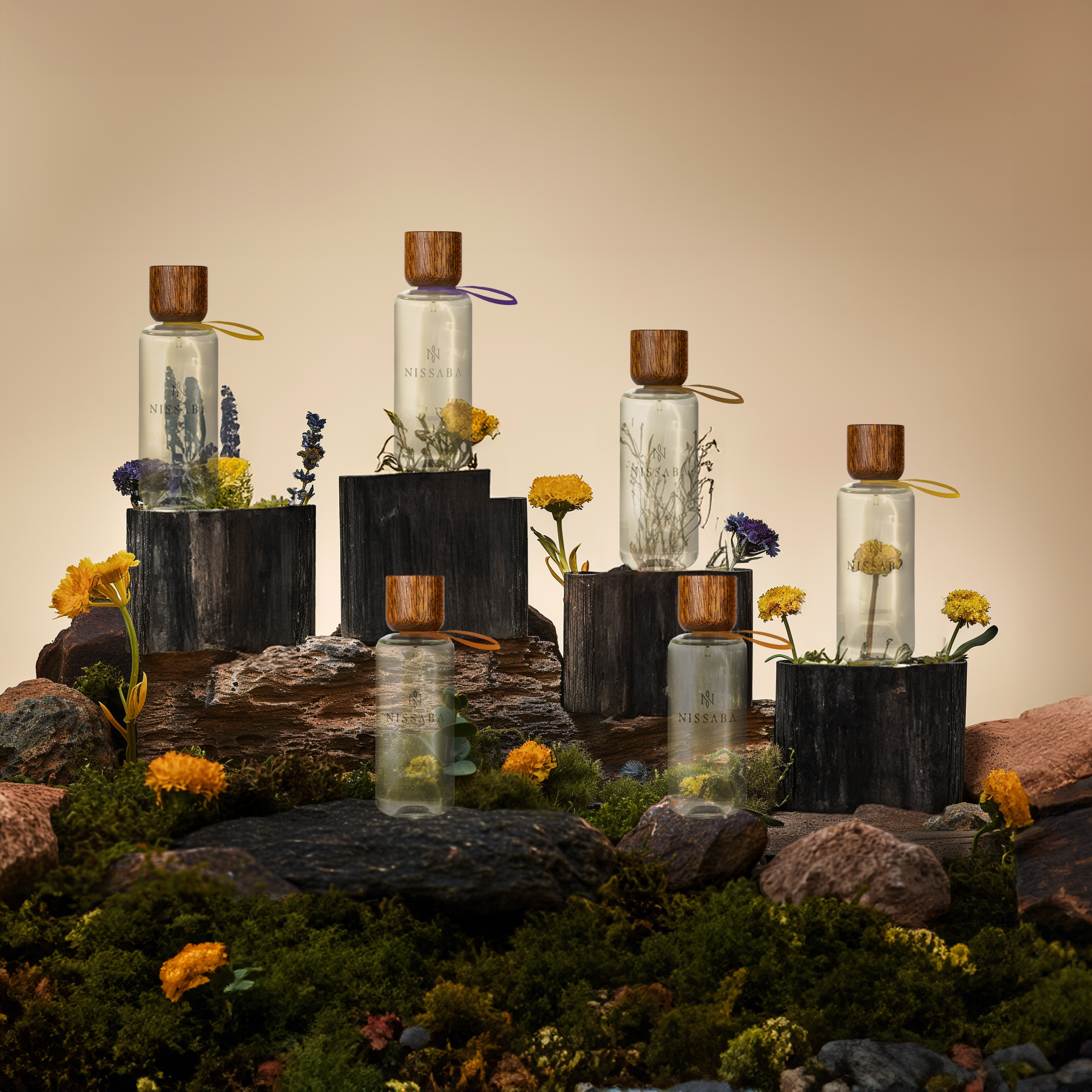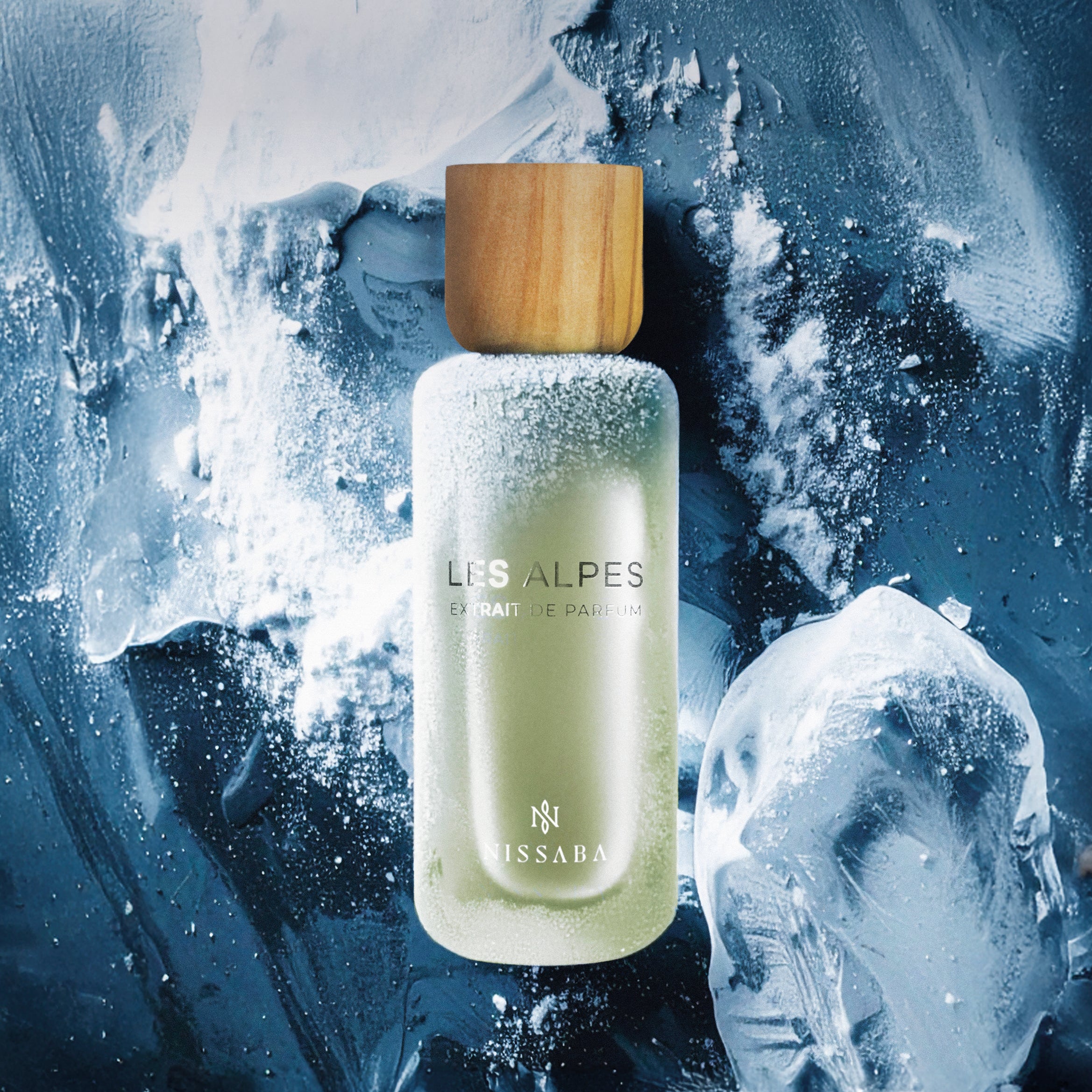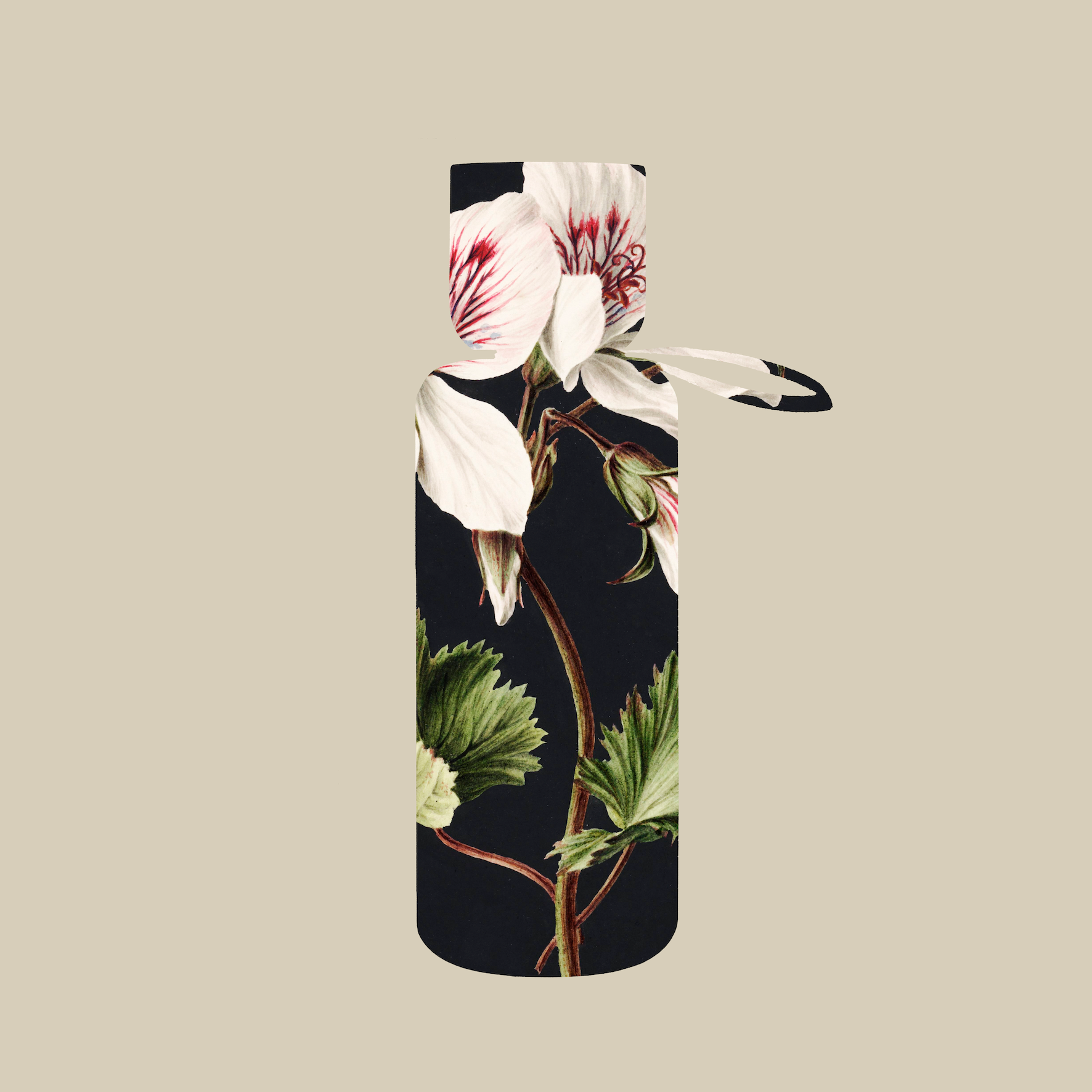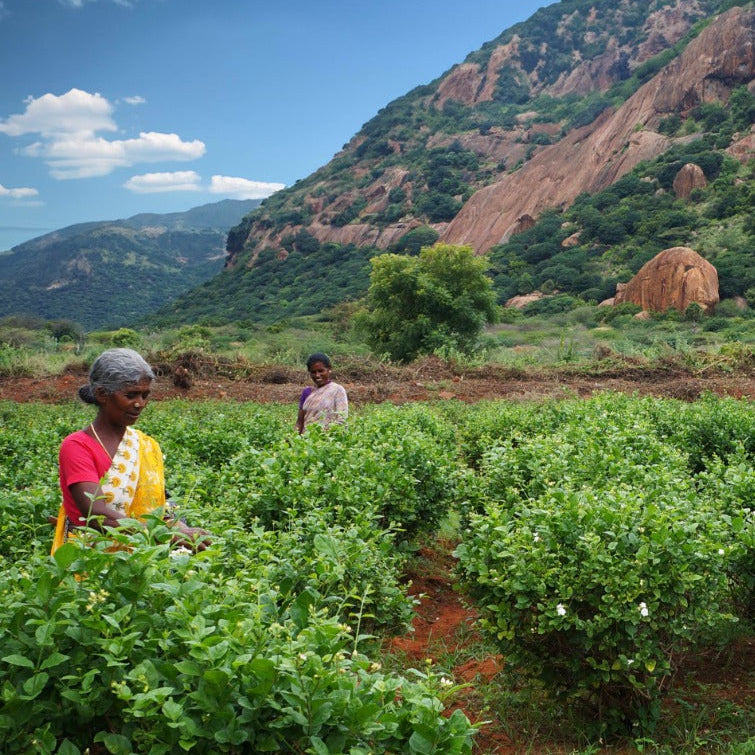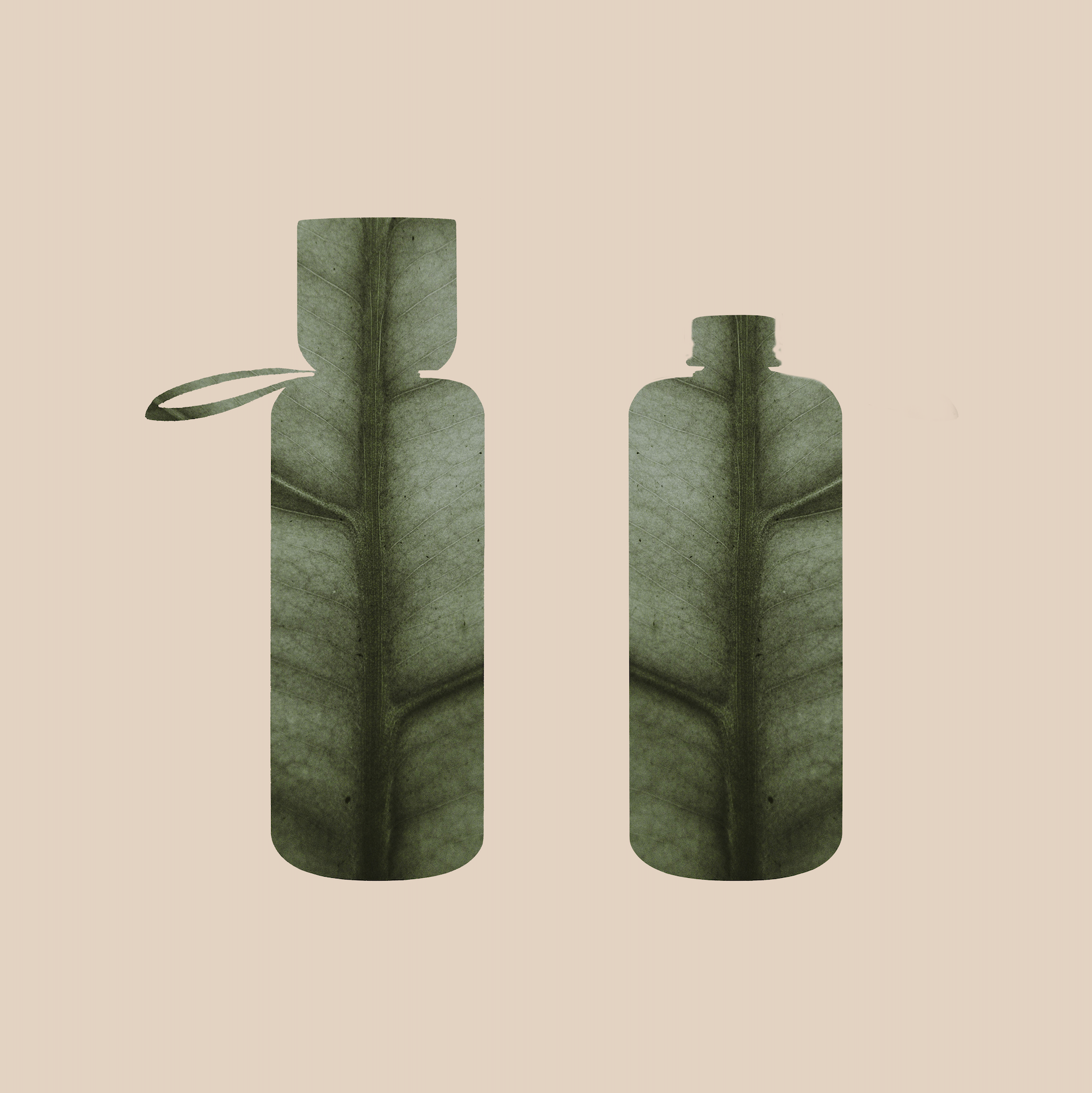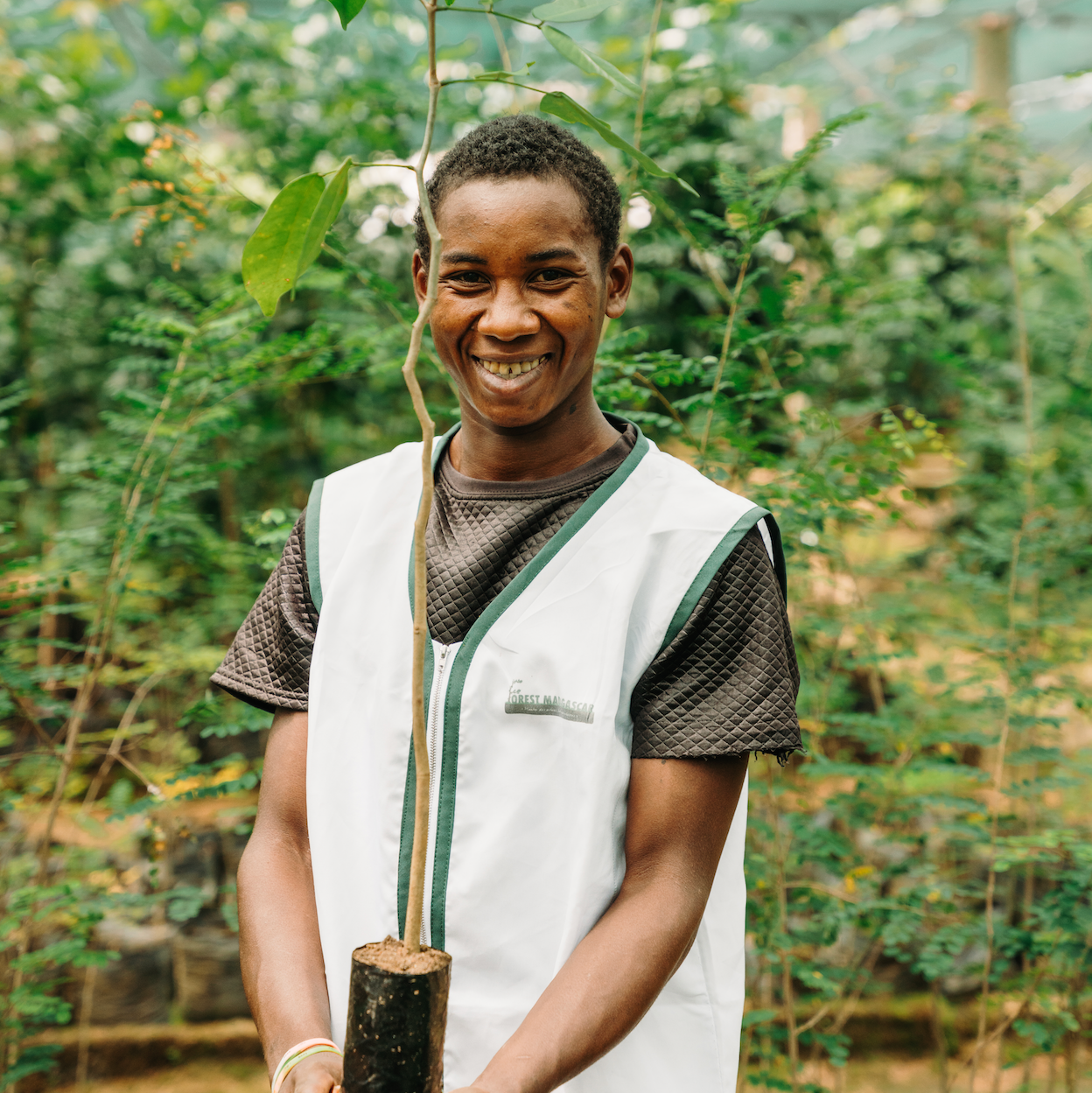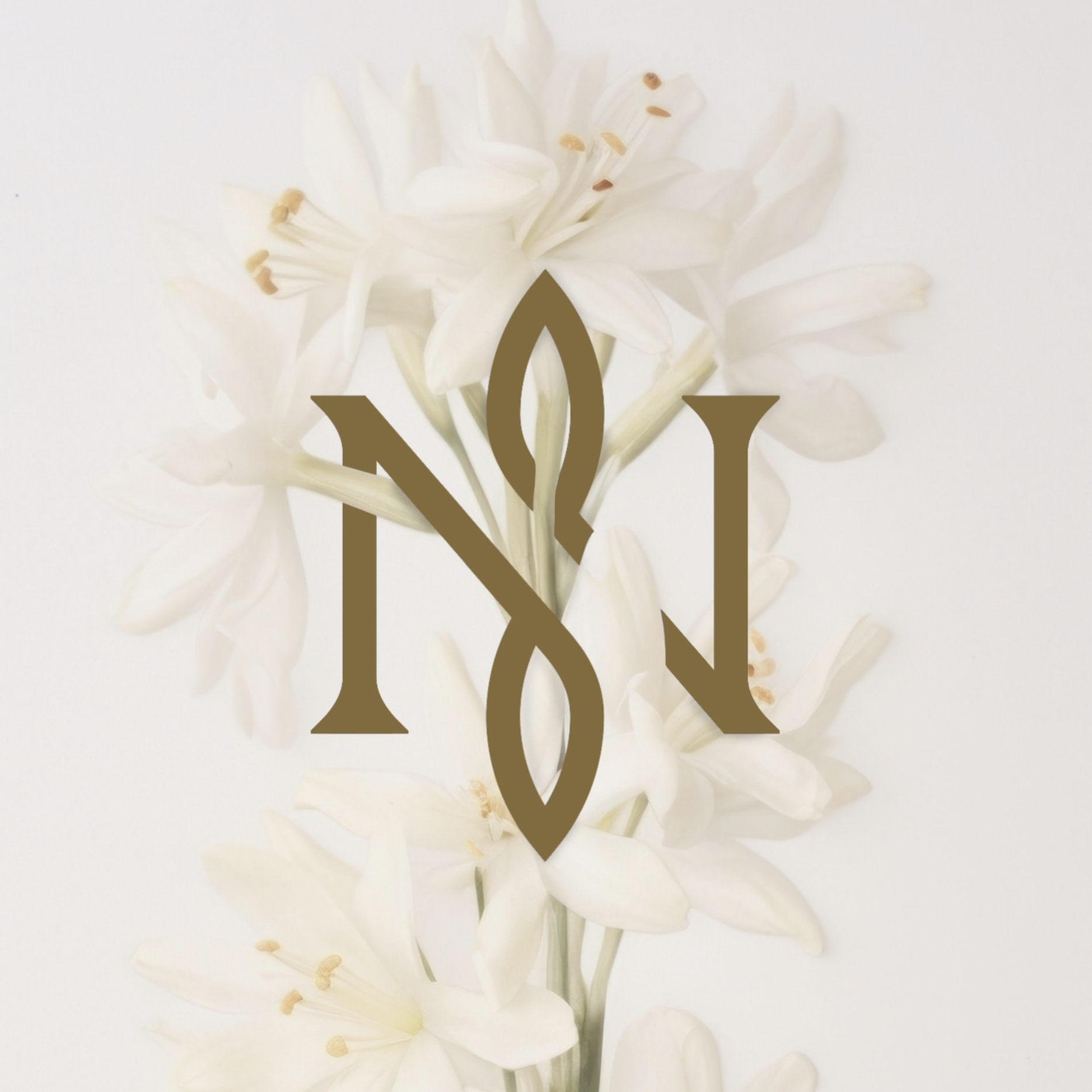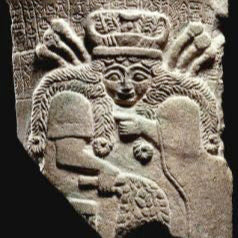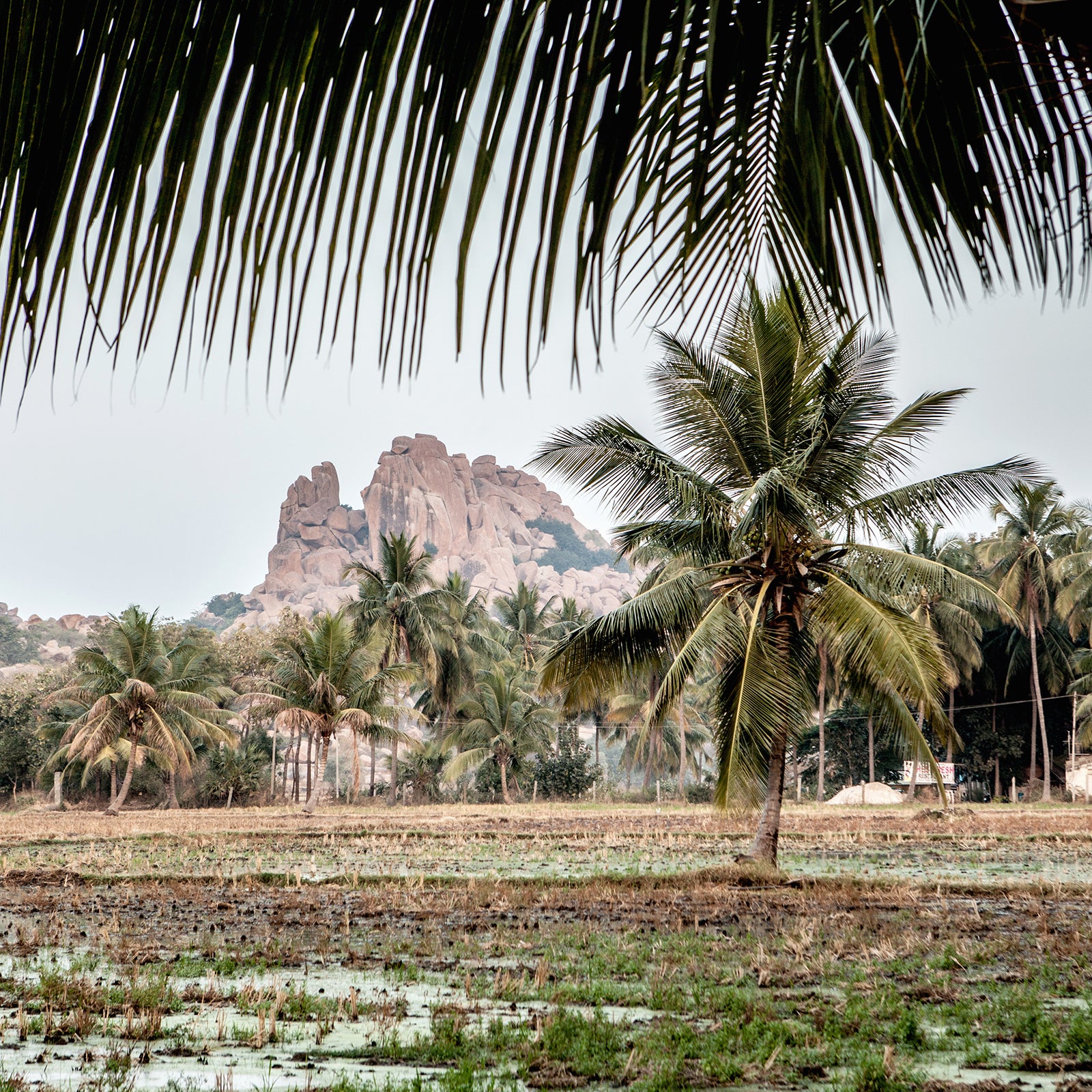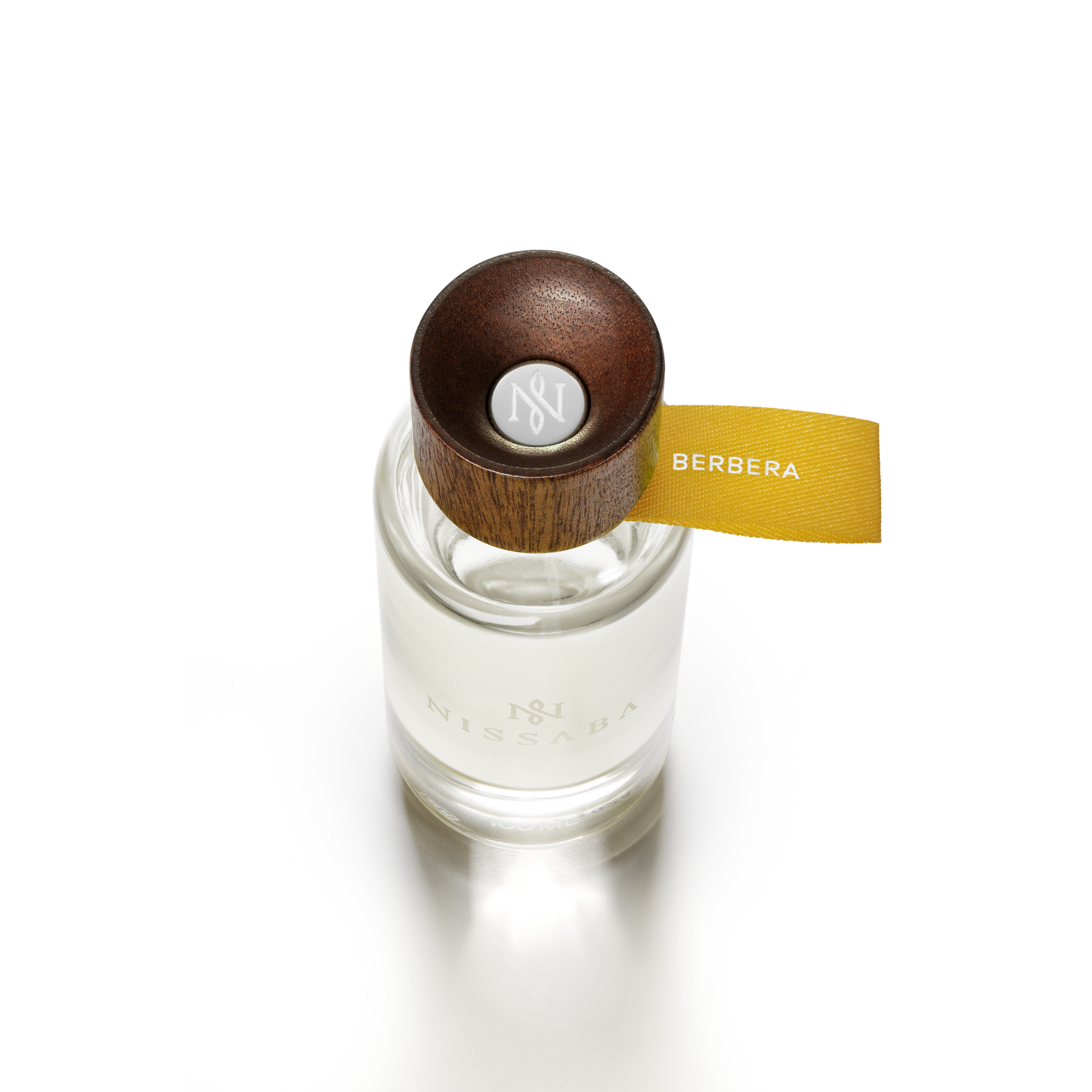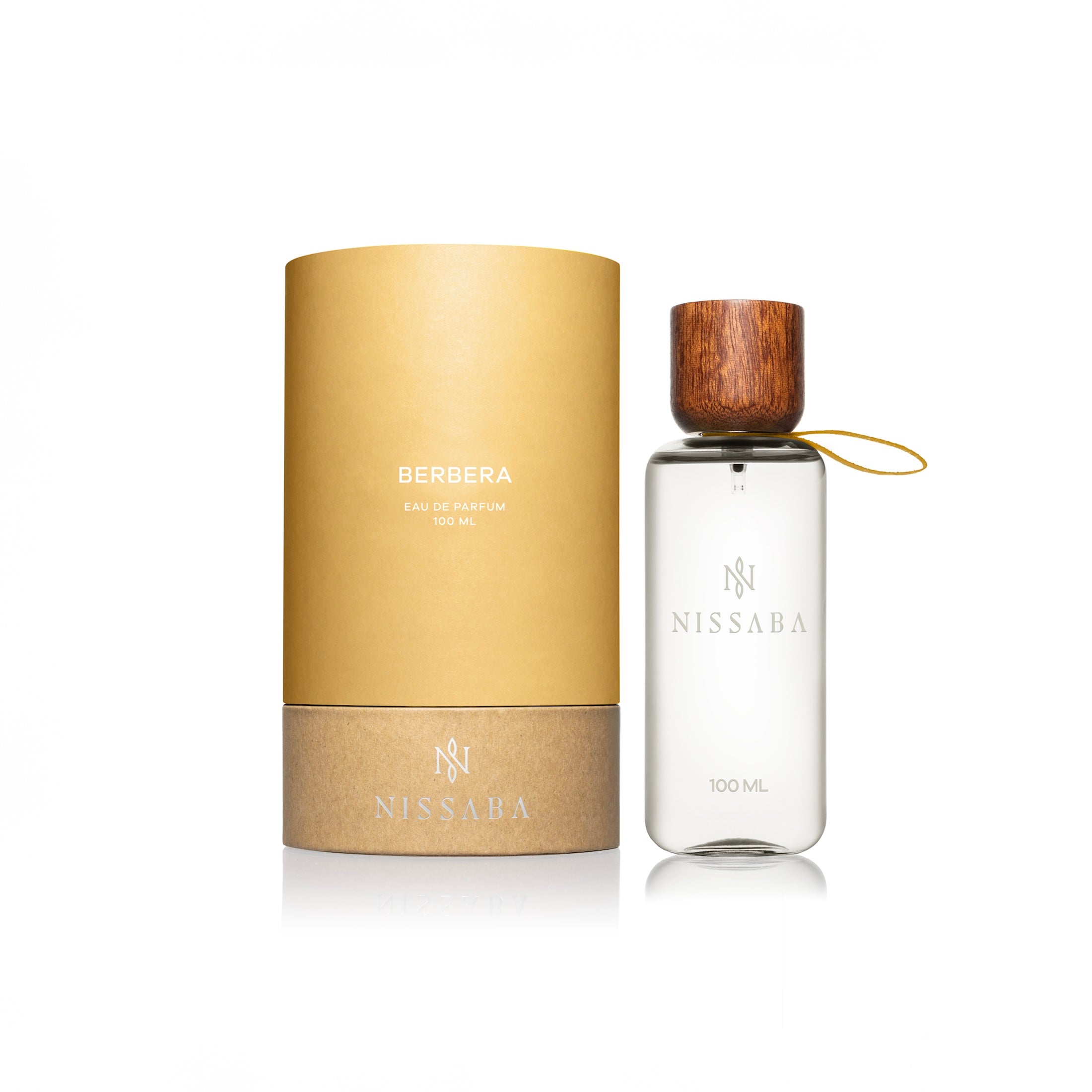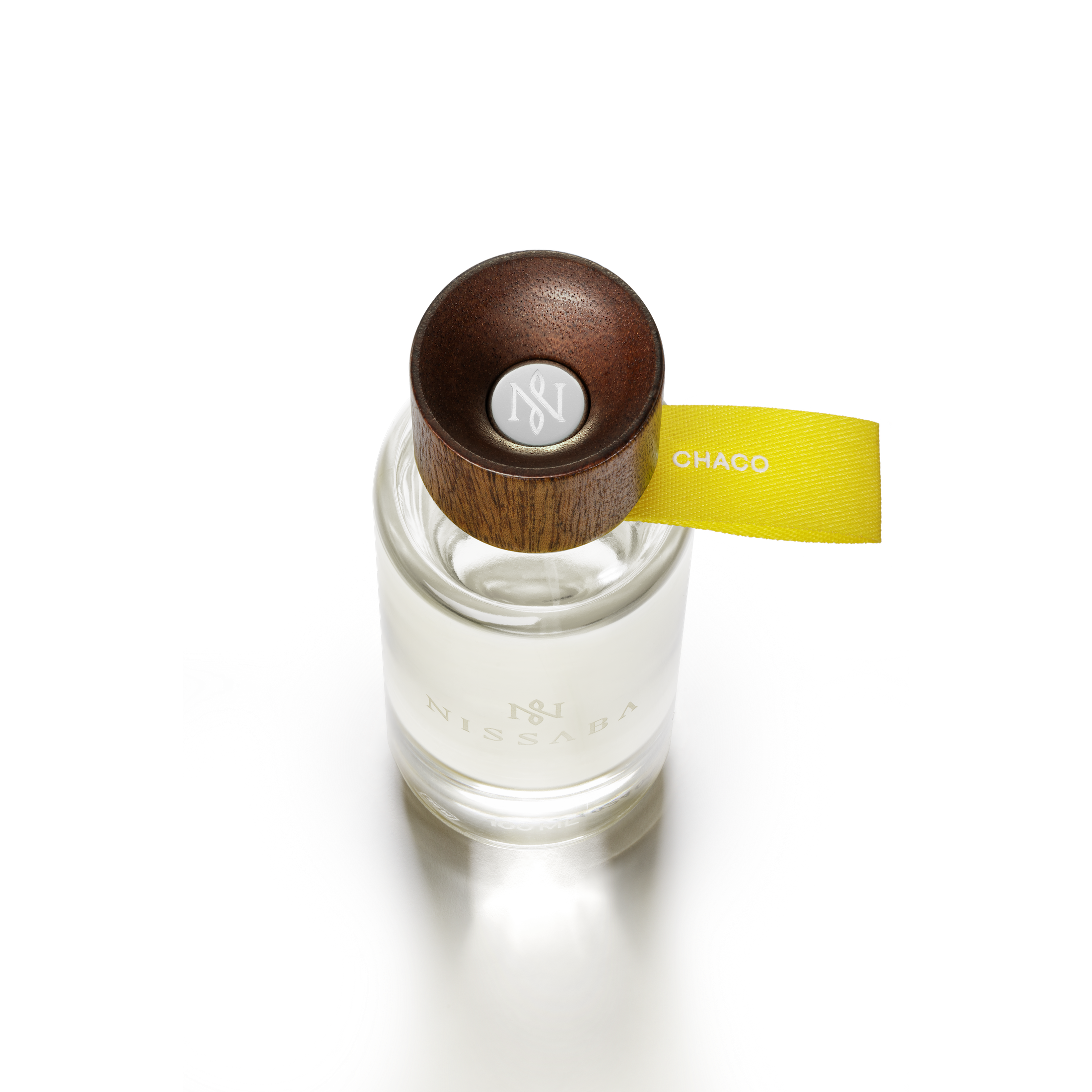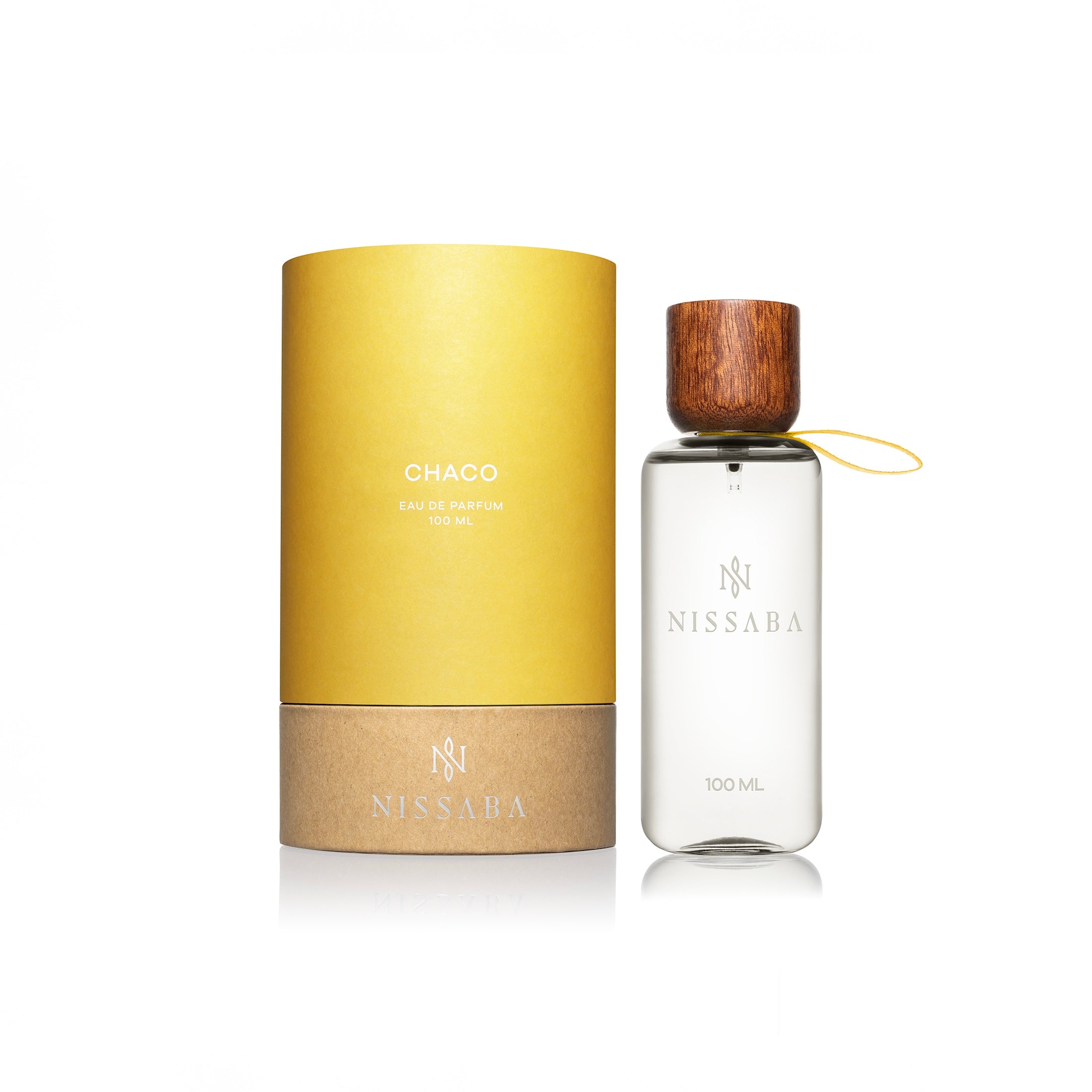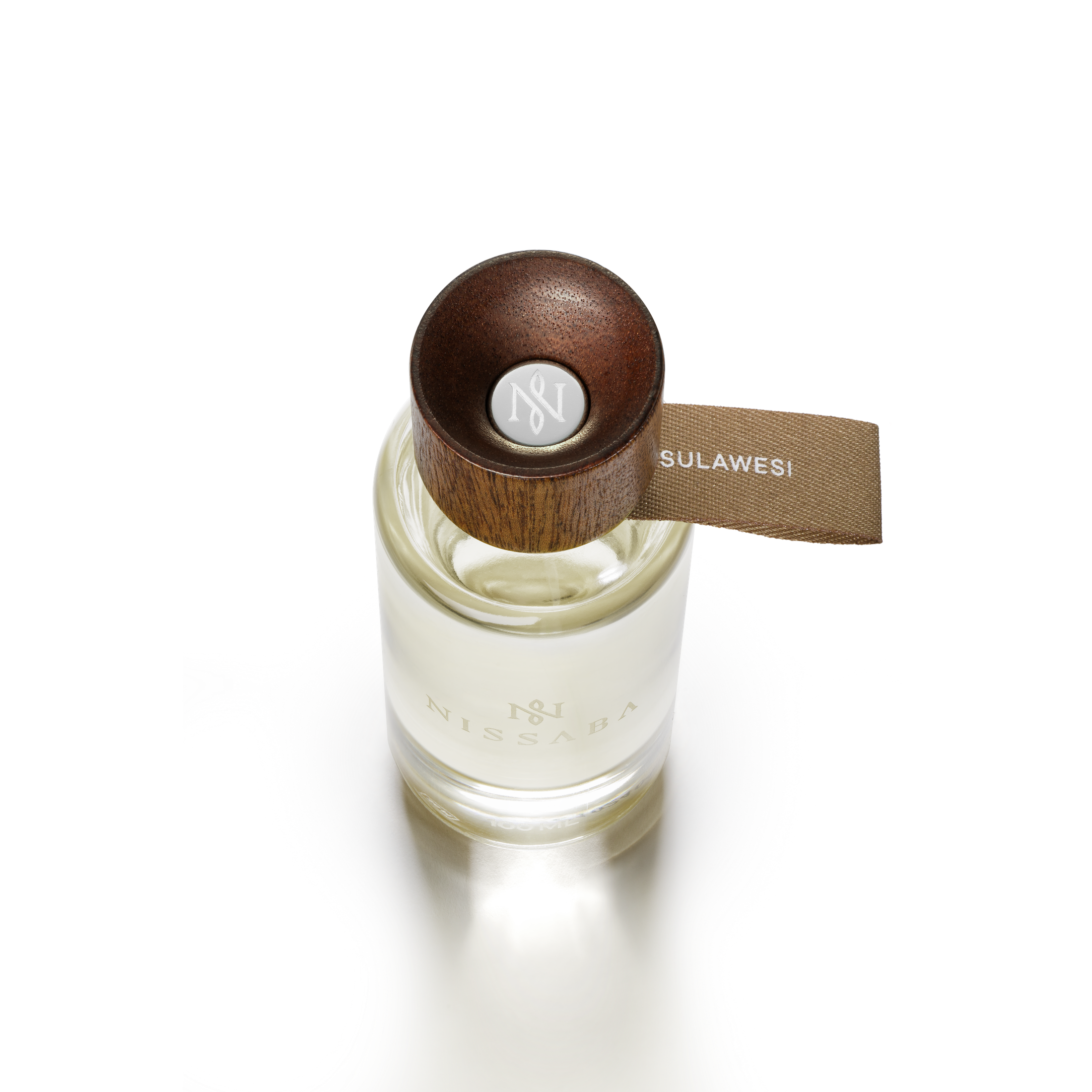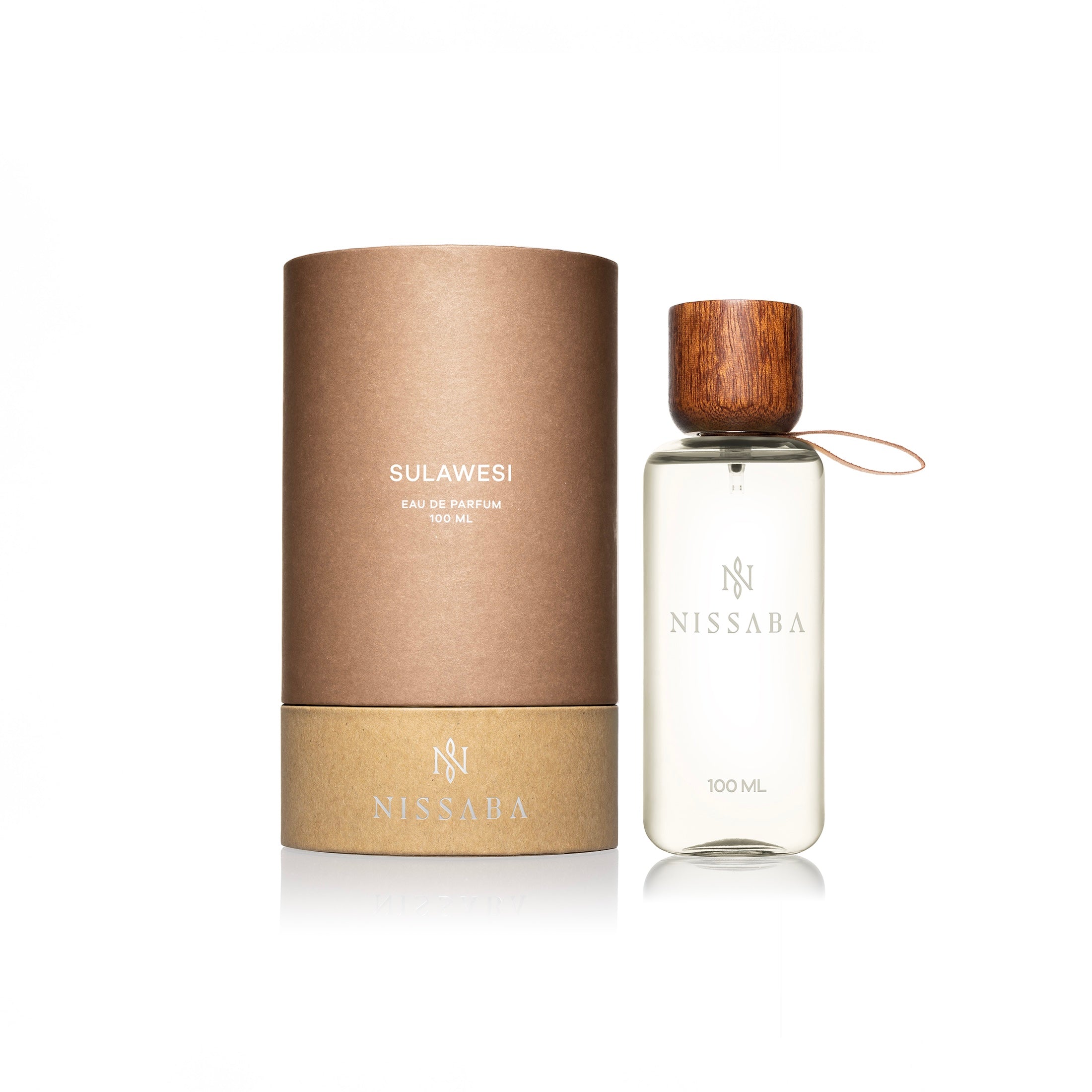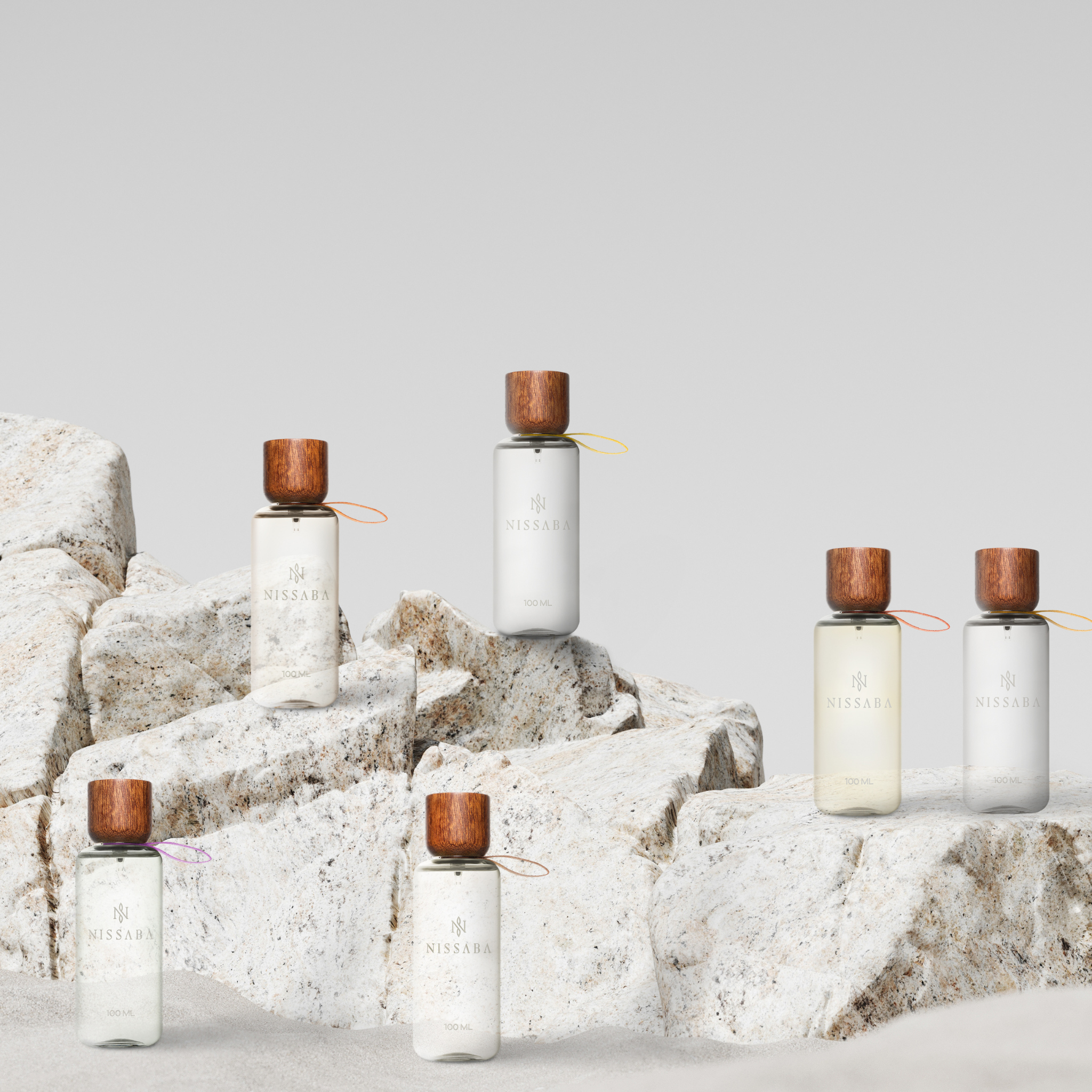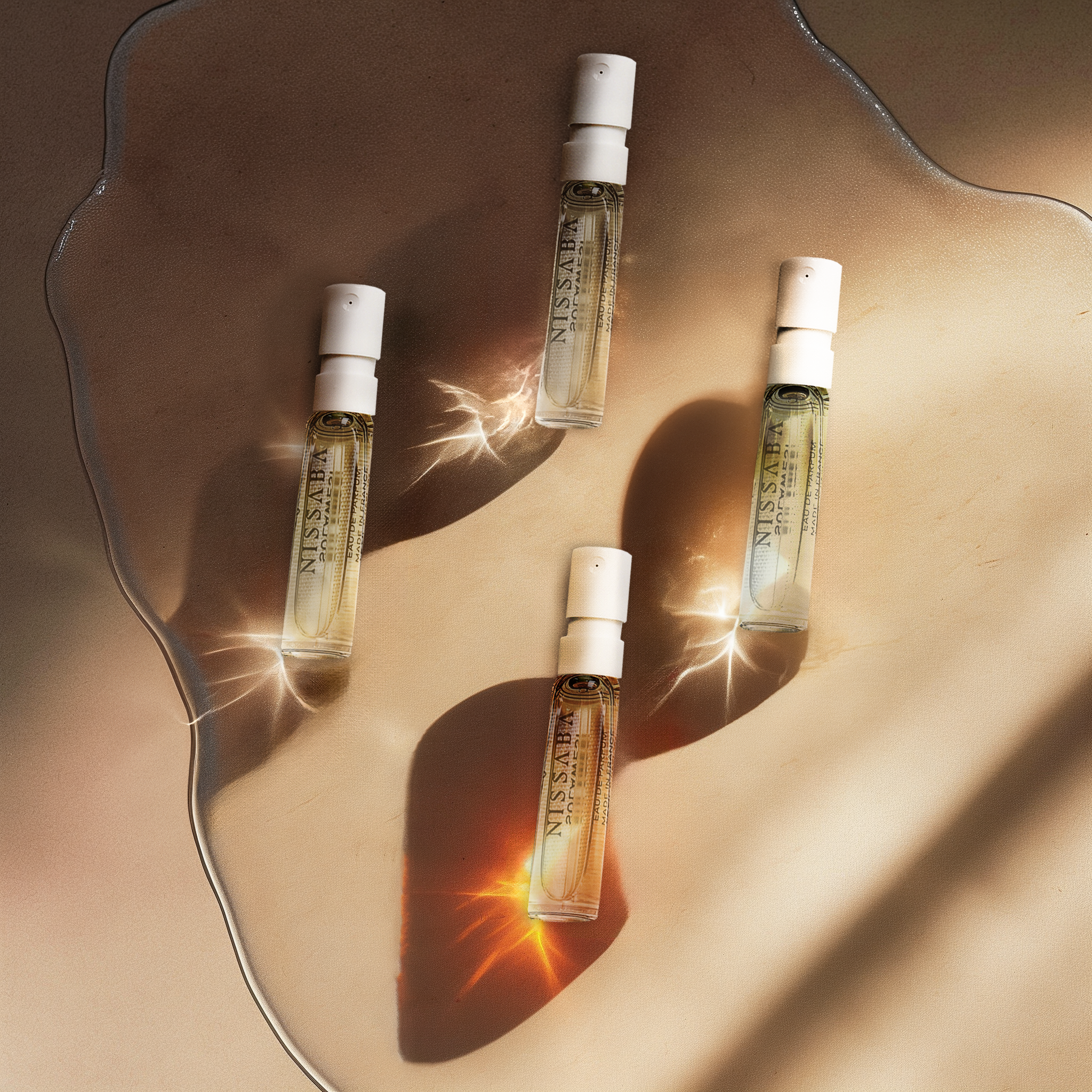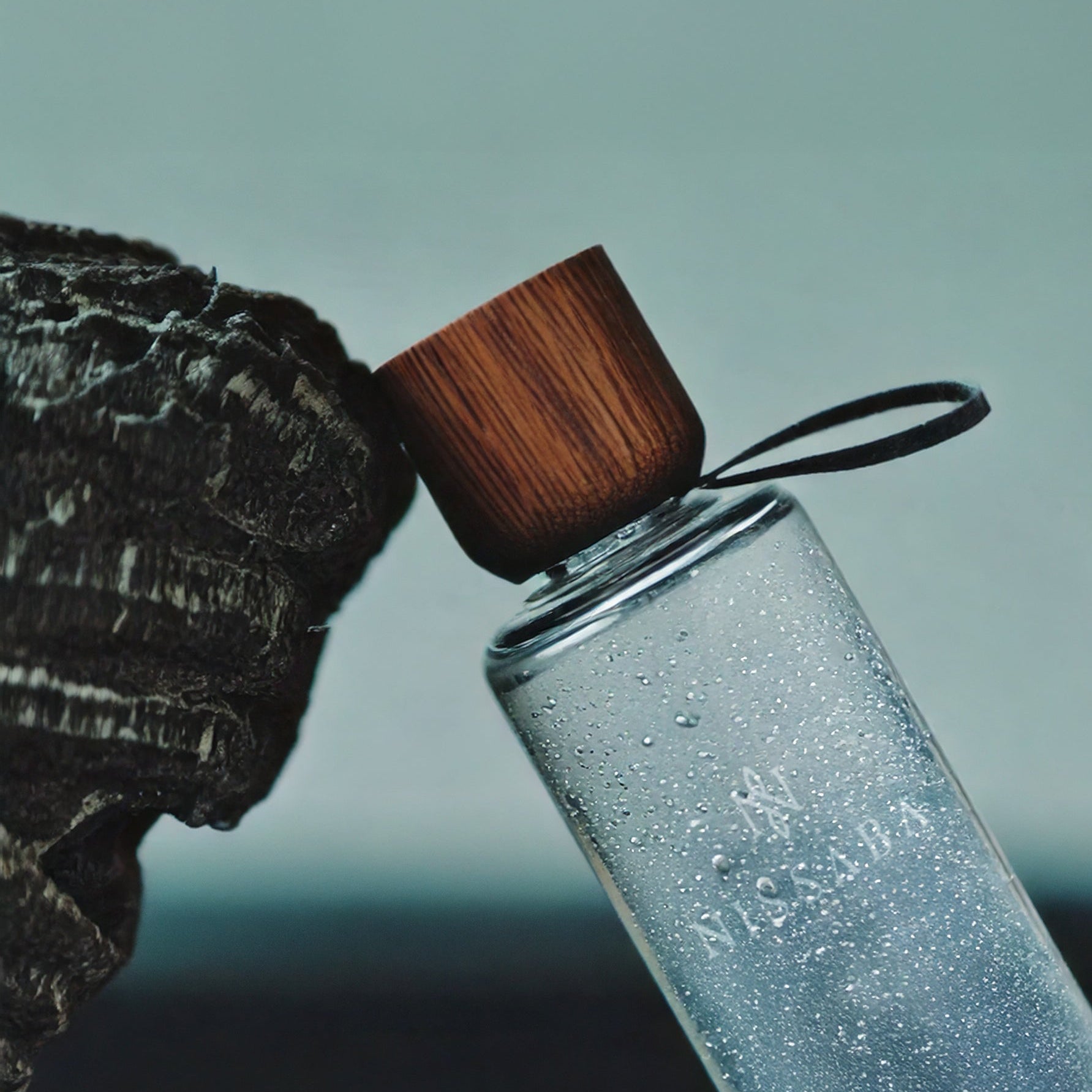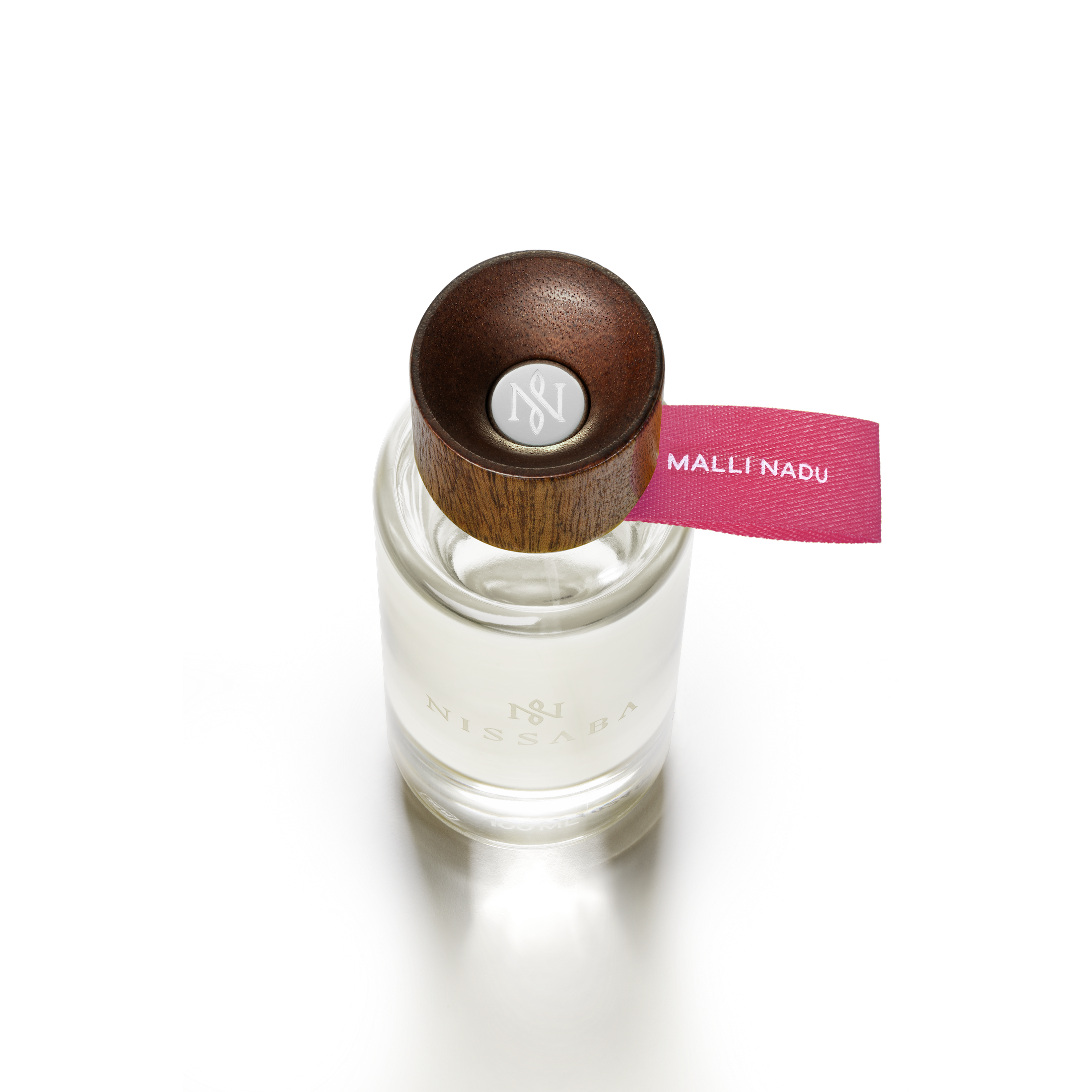
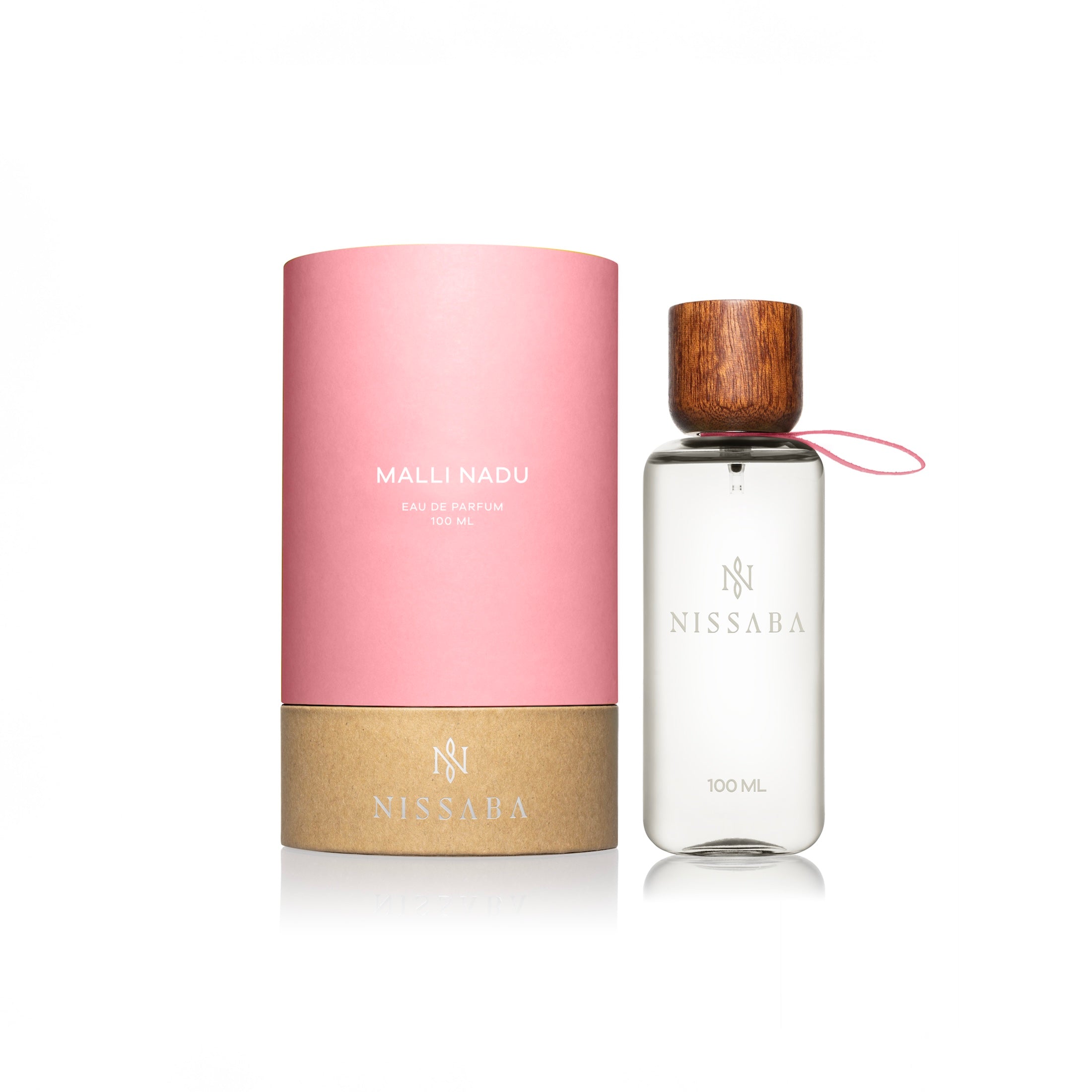
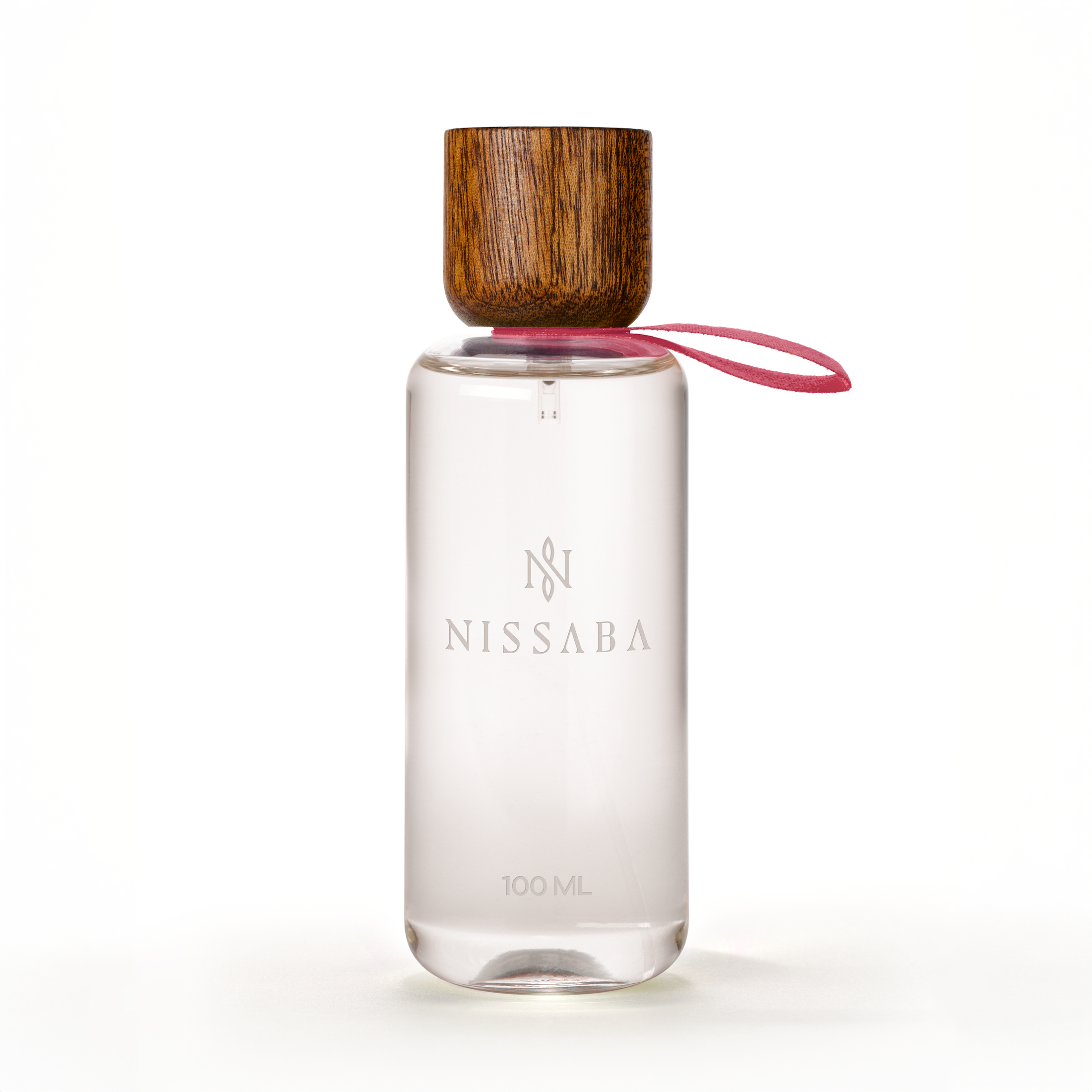
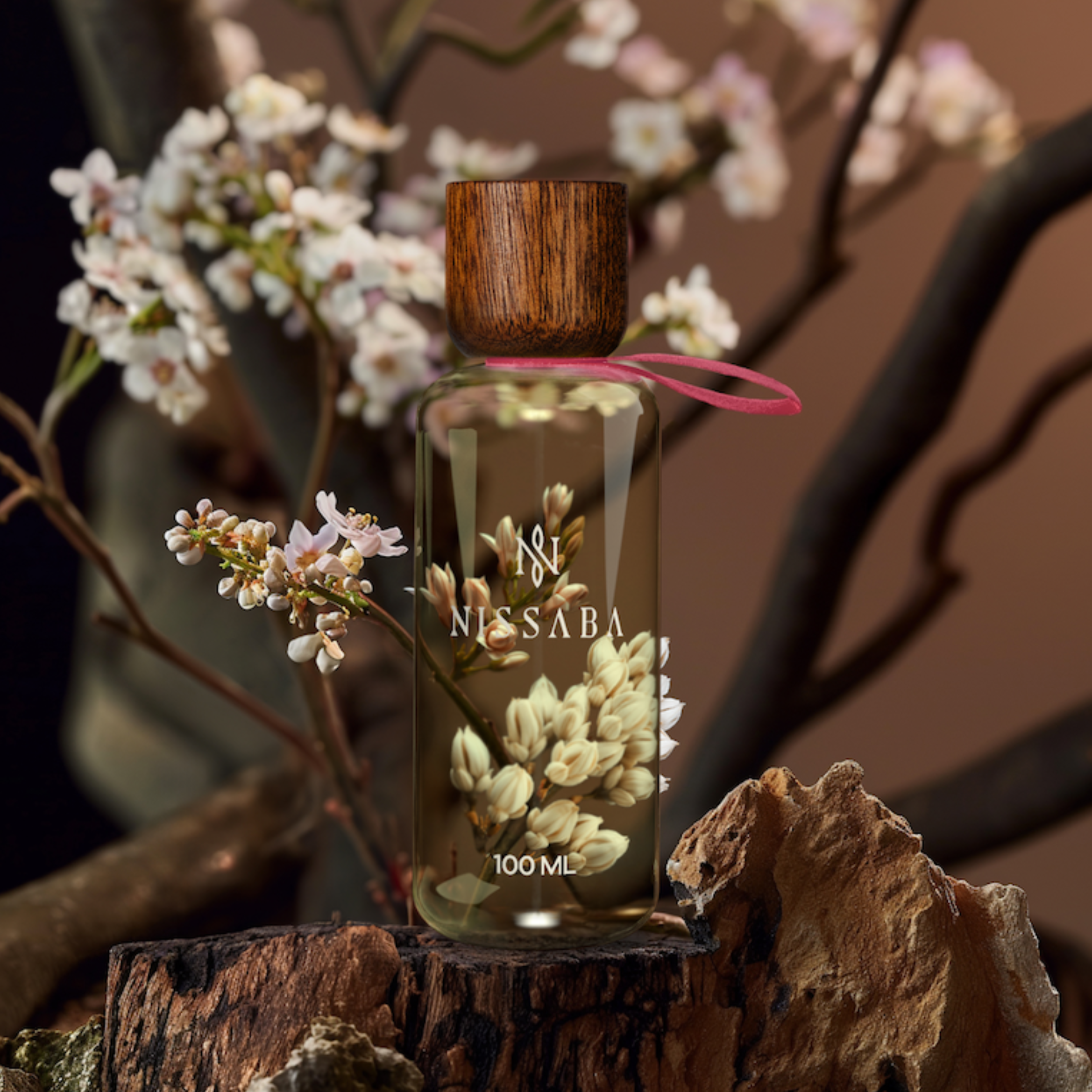
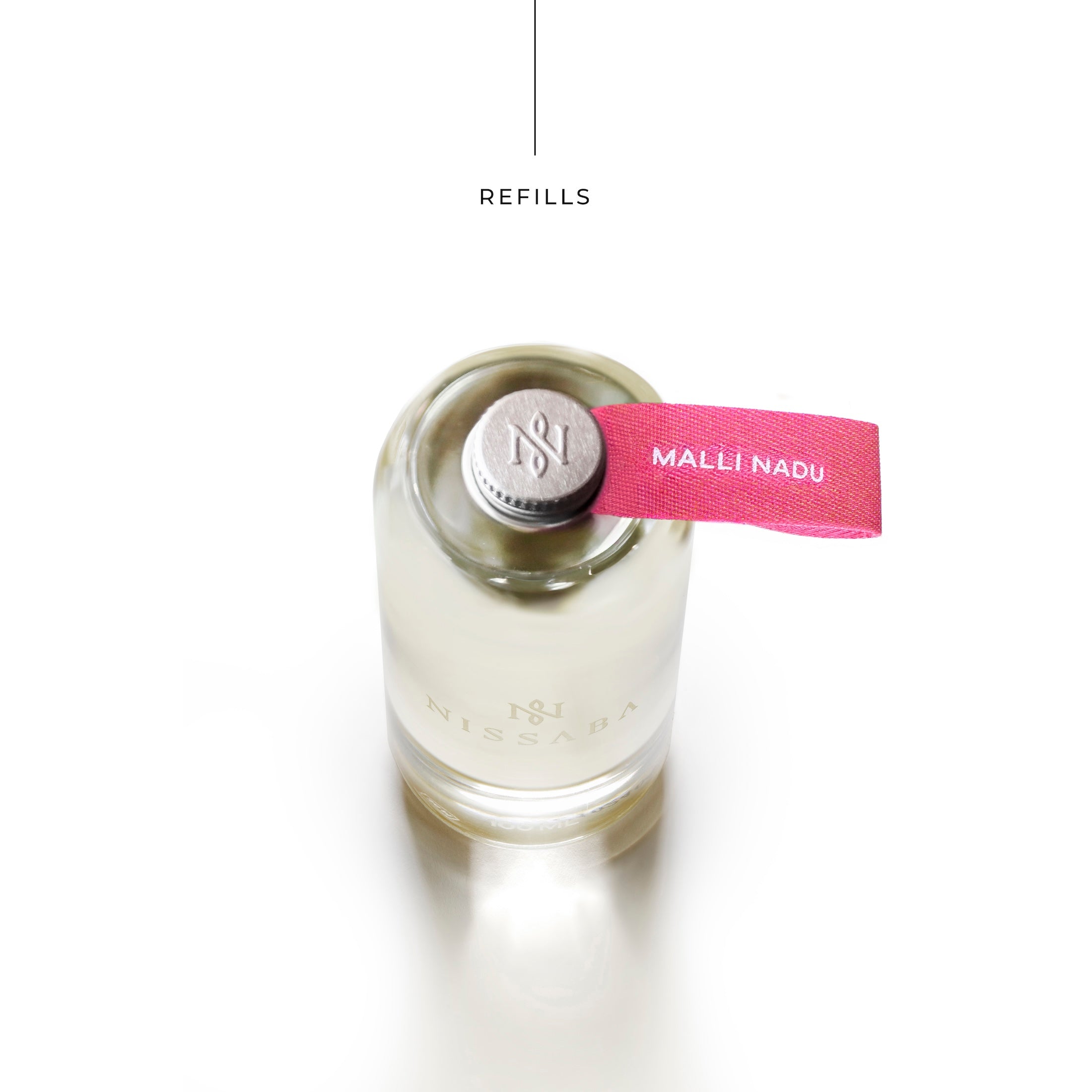
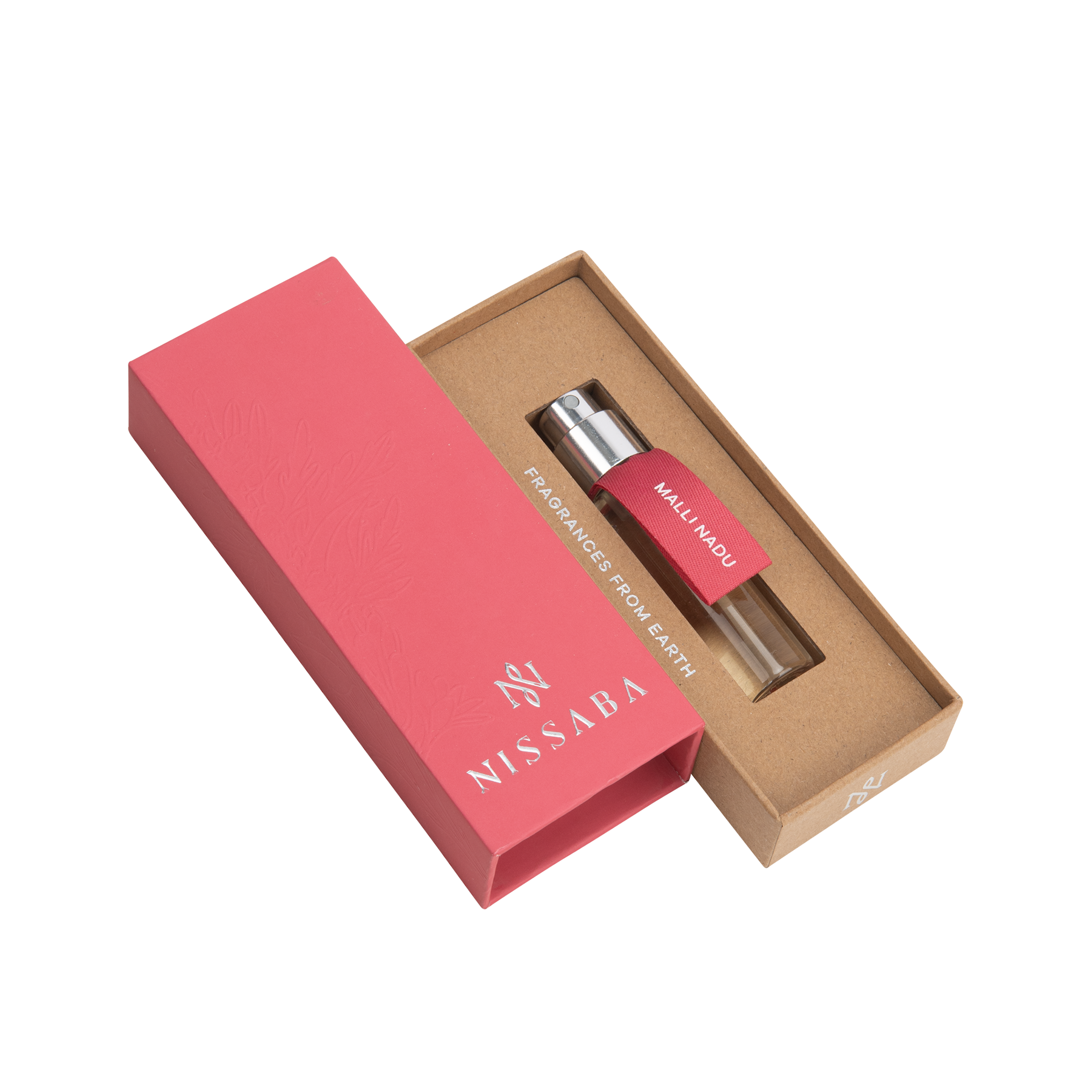
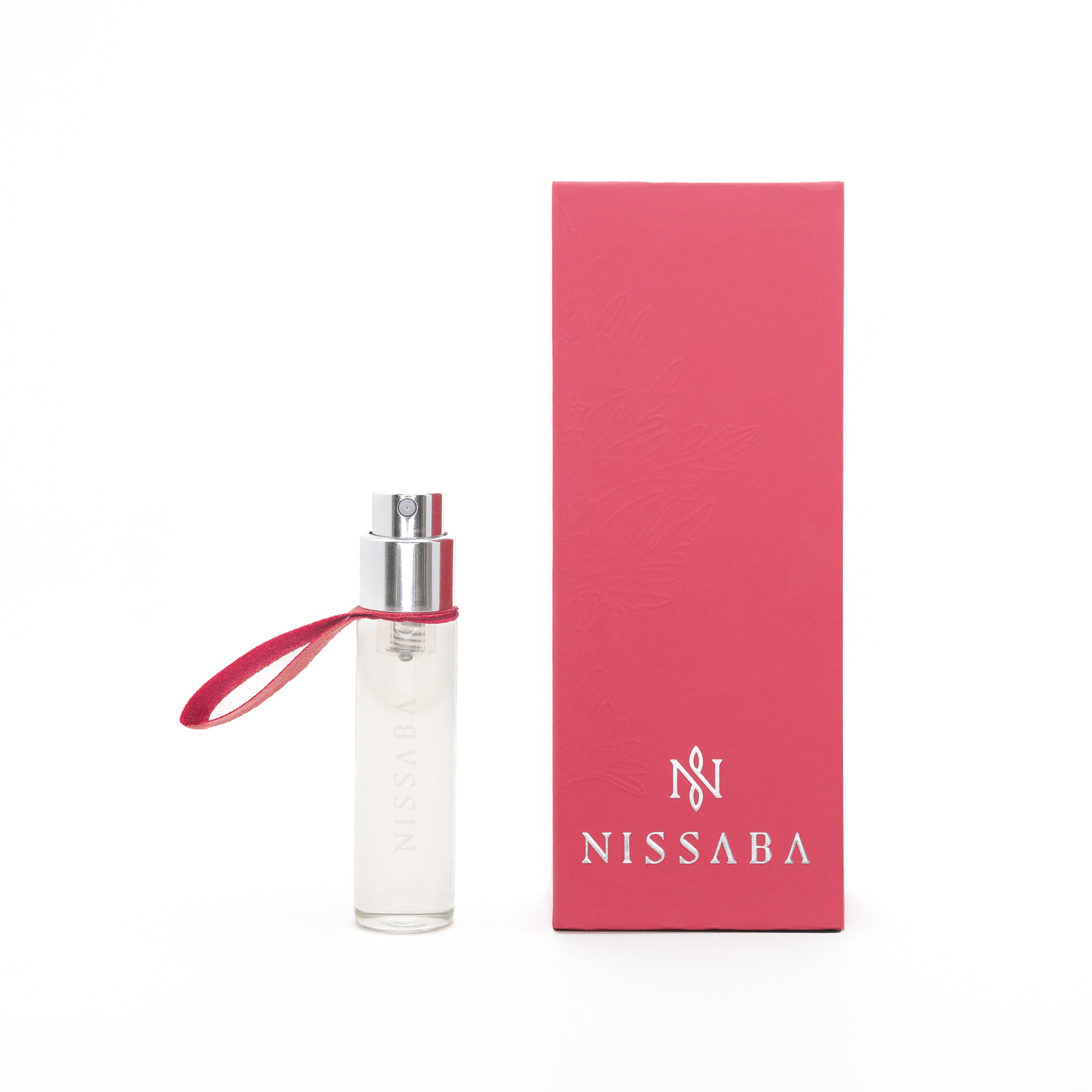
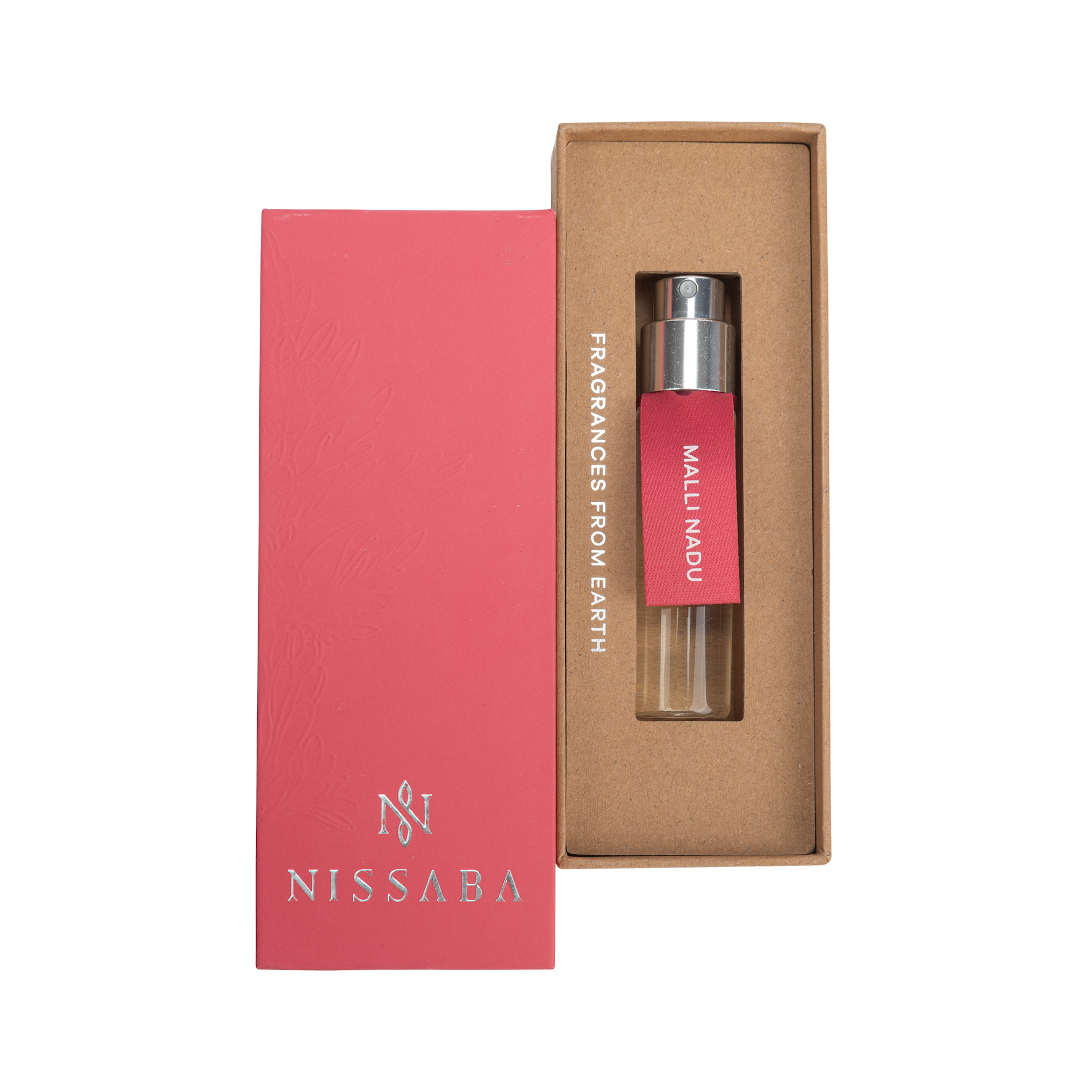

MALLI NADU
An enchanting white floral and fruity blend from Tamil Nadu
 Unique Creations
Unique Creations Clean & Safe
Clean & Safe 90%+ Natural
90%+ NaturalIn South India, flowers are an integral part of daily life—sacred symbols deeply woven into cultural and religious traditions. Many are dedicated to Hindu ceremonies, crafted into garlands to adorn hair, and used in celebrations, especially weddings. Each day, smallholder farmers bring tons of blooms to bustling local flower markets, where they're sold for spiritual offerings and decorative use. In Tamil Nadu, jasmine sambac buds are affectionately known as malli. Since Tamil Nadu means "the land of Tamils," the name Malli Nadu was chosen to poetically evoke "the land of jasmine sambac."
Description
An enchanting white floral and fruity blend inspired by Tamil Nadu’s vibrant spirit. This modern, authentic tuberose—free from powdery or indolic tones—shines alongside davana and a bouquet of iconic white flowers. Radiating love, optimism, and joy, the fragrance captures the beauty of India through its most treasured blooms. Rooted in the rich olfactive heritage of Tamil Nadu, it offers a luminous, joyful signature with every breath.
TOP - Indian davana shines with sparkling mandarin and orange
HEART - A sensual blend of Indian tuberose and jasmine elevated by Paradisone® for a natural floral freshness
BASE - Sumptuous Indian vetiver, creamy sandalwood and elegant cedarwood create a captivating woody trio
Ingredients from plants growing in Tamil Nadu : Tuberose absolute, Jasmine Sambac Absolute, Davana Essential oil, Vetiver India Essential Oil, Sandalwood essential oil, Palmarosa Essential Oil.
Other key ingredients : Mandarin and Orange essential oils in the top note for the freshness, Paradisone in the middle note to reinforce the jasmine profile, Cedars Virginia in the base note to form a wood bouquet together with the sandalwood and the vetiver
Certified organic French wheat alcohol
Total content of natural origin > 90%.
Ilias Ermenidis is a renowned perfumer, recognised for his expertise in the art of composing fragrances. Of Greek origin, he has worked for Firmenich in New York and Paris. Inspired by art and opera, Ermenidis likes to explore abstract olfactory forms. "The moment when an idea becomes a fragrance is magical and promising, but I'm not alone in this creative adventure. A fragrance also comes to life with people who inspire you. Together, we create something beautiful." His work includes masterpieces such as Gucci by Gucci, Givenchy pour Homme So de La Renta, Lancôme (Oud Ambroisie) and Yves Saint Laurent (Cuir).
No additives (no colors, UV filters, stabilizers).
The color of the fragrance comes from natural ingredients and may evolve over time.
Best consumed 36 months after opening.
Our fragrances are free from controversial substances : parabens, phthalates, added BHT and BHA, polycyclic musks, nitromusks, formaldehydes, nitrates, toluene, lyrial, lilial.
INCI list : molecules present in ingredients with a potential for allergens: ALCOHOL DENAT., PARFUM (FRAGRANCE), AQUA (WATER), BENZYL SALICYLATE, LINALOOL, TETRAMETHYL ACETYLOCTAHYDRONAPHTHALENES, LIMONENE, CITRUS AURANTIUM BERGAMIA (BERGAMOT), PEEL OIL, HEXYL CINNAMAL, HYDROXYCITRONELLAL, LINALYL ACETATE, CITRUS AURANTIUM PEEL OIL, CITRONELLOL, CITRUS LIMON (LEMON) PEEL OIL, GERANIOL, PINENE, VANILLIN, EUGENOL, BENZYL BENZOATE,BENZYL ALCOHOL, SANTALUM ALBUM (SANDALWOOD) OIL, CITRAL, ISOEUGENOL, SANTALOL, CINNAMYL ALCOHOL,JUNIPERUS VIRGINIANA OIL, GERANYL ACETATE, BETA-CARYOPHYLLENE, ANETHOLE, METHYL 2-OCTYNOATE,TERPINOLENE, POGOSTEMON CABLIN OIL, TERPINEOL, ALPHA-TERPINENE, BENZALDEHYDE, COUMARIN, METHYSALICYLATE, CANANGA ODORATA OIL/EXTRACT
Vegan. Not tested on animals.
Alcohol vol : 74.7%










Key ingredients from the Origin
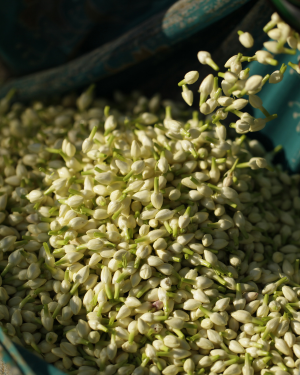
Jasmine Sambac
Jasmine Sambac bushes flourish in the tropical climate of South India, sheltered from the winds, in rich, well drained soils. It has been cultivated in these lands since Antiquity.
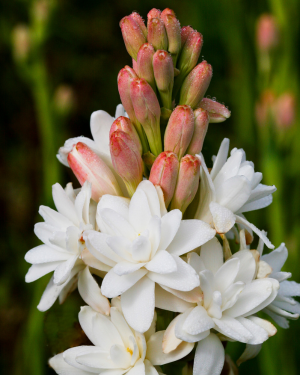
Tuberose
Originated form Mexico, once extensively cultivated in Grasse, the vast majority of Tuberose absolutes are now produced in India, cultivated in small plantations around Madurai.
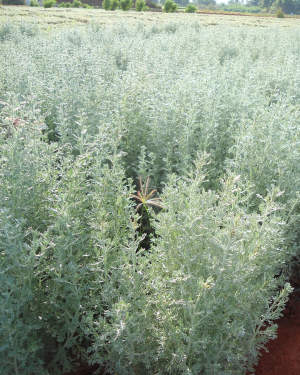
Davana
The davana plant requires a very specific climate to grow, with moderate temperatures. It is found only in the hills of Karnakata and in certain regions of Tamil Nadu.

